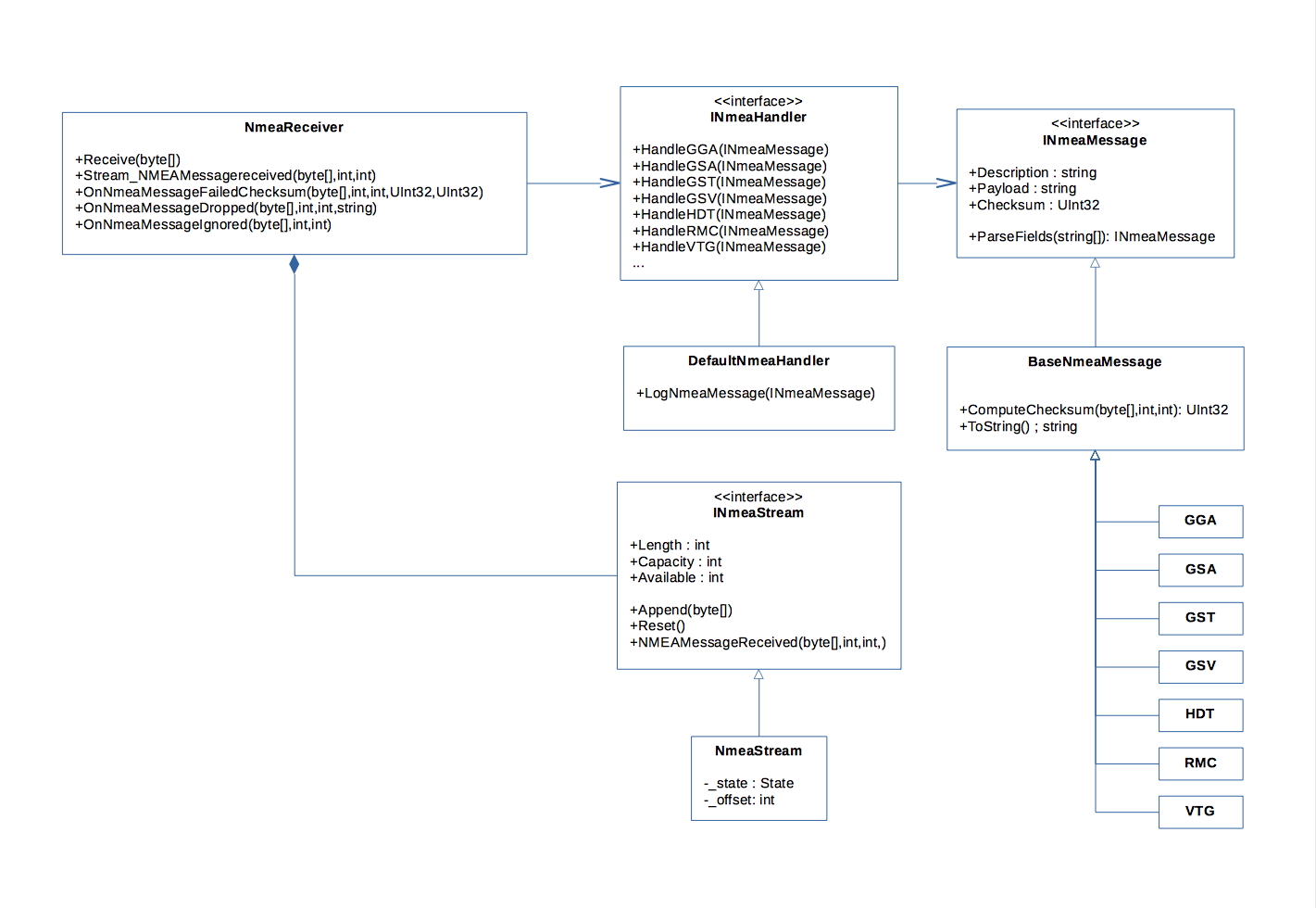-
Notifications
You must be signed in to change notification settings - Fork 0
Home
This is a basic NMEA-0183 parser that processes bytes fed into its API. When a complete NMEA sentence is successfully read, application-level handlers are invoked.
There are many implementations of NMEA-0183 parsers out there. This is not about reinventing the wheel, but as an exercise on my part to port NMEA parsing code that I wrote over 12 years ago in C++. The motivation to put this up on Github came after I was invited to apply for work with the condition that I pass a coding tests. Having been on the hiring end of the coding interview, I can say that coding tests are utterly useless when compared to actual code samples on Github. So here I am with samples that - at the very least - depicts my coding style.
This is a clean and fairly easy to extend implementation.
This is the simplest scenario: using the DefaultNmeaHandler class. DefaultNmeaHandler implements the contract INmeaHandler, which defines support for the following NMEA-0183 data types:
- GGA : Global Positioning System Fix Data
- GSA : Satellite status
- GSV : Satellites in view
- GST : GPS Pseudorange Noise Statistics
- HDT : NMEA heading log
- RMC : Recommended Minimum data for gps
- VTG : Track made good and ground speed
DefaultNmeaHandler implements the contract by invoking the event handler LogNmeaMessage each time a supported NMEA sentence is successfully parsed.
using Invernesspark.Utilities.NMEA; ... // ... Create an object to handle parsed NMEA messages DefaultNmeaHandler nmeaHandler = new DefaultNmeaHandler() ; nmeaHandler.LogNmeaMessage += str => { Console.WriteLine("New NMEA Message: {0}", str ) ; }; // ... Create the NMEA receiver NmeaReceiver nmeaReceiver = new NmeaReceiver( nmeaHandler ) ; // ... Attach handler for NMEA messages that fail NMEA checksum verification nmeaReceiver.NmeaMessageFailedChecksum += (bytes, index, count, expected, actual) => { Console.Error.WriteLine("Failed Checksum: {0}; expected {1} but got {2}", Encoding.ASCII.GetString(bytes.Skip(index).Take(count).ToArray()), expected, actual ); }; // ... Attach handler for NMEA messages that contain invalid syntax nmeaReceiver.NmeaMessageDropped += (bytes, index, count, reason) => { Console.WriteLine("Bad Syntax: {0}; reason: {1}", Encoding.ASCII.GetString(bytes.Skip(index).Take(count).ToArray()), reason ); }; // ... Attach handler for NMEA messages that are ignored (unsupported) nmeaReceiver.NmeaMessageIgnored += (bytes, index, count) => { Console.WriteLine("Ignored: {0}", Encoding.ASCII.GetString(bytes.Skip(index).Take(count).ToArray())); }; // ... Your byte receiving logic... bool keepReceiving = true ; while ( keepReceiving ) { byte [] bytesReceived = /* receive some bytes from socket, file, whatever... */ // ... Feed the bytes into the NMEA receiver nmeaReceiver.Receive( bytesReceived ) ; }
The above code will invoke the appropriate callbacks each time a NMEA sentence is received.
